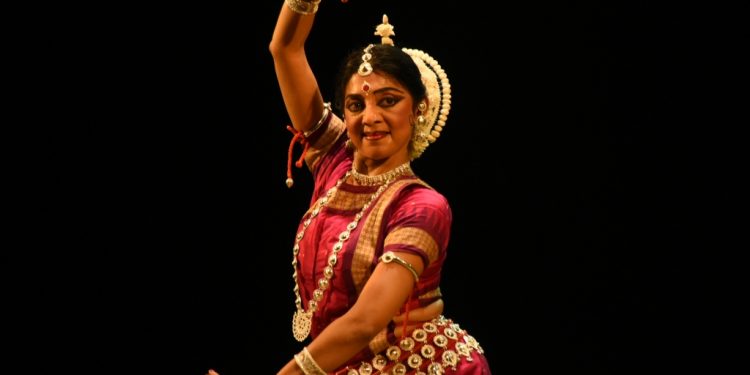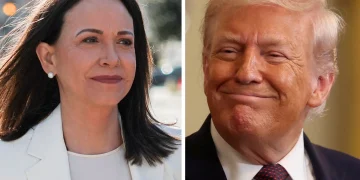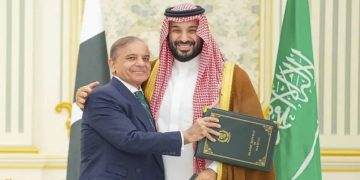The fourth evening of the festival promises another wonderful confluence of music and dance with performances lined up by famed Hindustani musicians Indrani Mukherjee, Apurba Mukherjee accompanied by Gourav Chatterjee, followed by Odissi performances
Bhubaneswar: The third evening of 25th OMC Guru Kelucharan Mohapatra Award Festival commenced with the traditional lighting of the lamp by dignitaries— Suresh Chandra Hota, Director, Biju Patnaik International Airport, Debashish Pattnaik, Director, The Crown and Ratikant Mohapatra, Director, Srjan— at Rabindra Mandap here, Saturday.
First was the Hindustani Music recital by renowned Sarangi exponent Sabir Khan accompanied by young and versatile Tabla player Ishaan Ghosh. They began their recital with an invocation. Sabir Khan’s performance displayed sheer brilliance in musical improvisations with sustained melodic and rhythmic patterns, while Ishaan Ghosh’s effortless percussion play portrayed his versatility and perfection in articulating complex rhythmic patterns. Exploring novel interpretations of Sarangi playing, Sabir Khan delved into the nuances of the beautiful ‘Vachaspati Raag’. With its celebratory notes, this raag invoked a feeling both of happiness and gaeity. In their recital, they also explored folk and Rajasthani compositions.
In the only solo presentation of the festival, Niharika Mohanty, senior disciple of Guru Kelucharan Mohapatra, and founder-director of Guru Shradha, California, USA, presented two dance pieces, ‘Behag Pallavi’, a pure dance and ‘Braja ku choro’, an ‘Odia Abhinaya’. Both pieces have been composed by the legendary Guru Kelucharan Mohapatra. With years of nuanced training under Guruji, Niharika Mohanty’s execution of ‘Behag Pallavi’ displayed the essence of Guru Kelucharan Mohapatra’s gharana was executed and interwoven with her own creative expression. In her second presentation, ‘Braja ku choro asichi’, she beautifully portrayed mother Yashoda cajoling baby Krishna to sleep. If he does not, then a thief who has come to Braja would steal him away.
The concluding presentation for the evening was by eminent Odissi guru, Bichitranda Swain’s Rudrakshya ensemble. They presented ‘Jaha Krishna Saha Kali’, a production delving into a deep connection between Krishna –an avatar of Vishnu, and Kali –an avatar of Shakti. The composition explored the many similarities and contrasts between Krishna and Kali. While Krishna secures the cosmos with compassion, Kali maintains the cycle of birth and death of every being residing in it with her fierceness.
Set to the music composition of Ramahari Das, rhythm composition of Dhaneswar Swain and the dance direction and choreography of Bichitrananda Swain, the dancers Jagyan, Dushasan, Bichitra, Santosh, Samir, Sanjeev, and Rasmi portrayed this intricate production beautifully with neat footwork, grace, and commendable stage presence, an apt conclusion to the third evening of the Award Festival.
It may be mentioned here that the second evening of the Award Festival September 6 was a memorable confluence of stellar music and dance performances, featuring the classical music fusion presentation by Flautist Paras Nath, Violinist Deepak Pandit, and ‘Mandolin’ Rajesh, accompanied on the Tabla by Prashant Sonagra, and later Odissi group presentations by Suravi and Orissa Dance Academy, reputed Odissi dance institutions of the state.
The fourth evening of the Festival will be another wonderful confluence of music and dance with performances lined up by famed Hindustani musicians Indrani Mukherjee, Apurba Mukherjee accompanied by Gourav Chatterjee, followed by Odissi group presentations by Tridhara, from Bhubaneswar, led by Gajendra Panda and Soor Mandir from Cuttack led by Jyotsna Rani Sahoo.






































